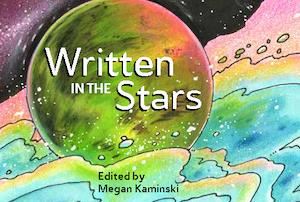

It's Time to Expand Our Views on Peacemaking
March 8, 2021
by Sheryl R. Wilson, Director of the Kansas Institute for Peace and Conflict Resolution
In recent months, I have been thinking deeply about what it means to bring peace. Our work at the Kansas Institute for Peace and Conflict Resolution (KIPCOR) naturally finds us helping people find peaceful solutions through conflict resolution work, specifically restorative justice and mediation.
Peacemaking may mean standing up for those who are disenfranchised, underserved, unnoticed, or simply in need. Or it can mean not making a statement and practicing restraint.
Sometimes we must go against the grain to bring peace. After the recent riots at the U.S. Capitol, reflecting on the day’s events and the people who incited the conflict, Senator Mitt Romney said: “the best way we can show respect for the voters who were upset is by telling them the truth.”
Telling the truth brings about peace because it destroys the illusion of myths. The folktale, The Emperor’s New Clothes, tells the story of an emperor who was deceived into believing the false narrative that he was wearing a beautiful new suit, when, in reality, no one wanted to tell him the truth - that he wasn't wearing any clothes. Are we walking on eggshells because we are trying to avoid telling someone the truth?
I feel extremely fortunate to work in the field of restorative justice. At KIPCOR, through the Restorative Schools Initiative, (RSI), our RSI Team trains educators, administrators, and other school staff in restorative practices, which introduces a solid foundation for community building, and provides options for truth-telling and peaceful solutions when conflict arises in K-12 school environments. Equipping young people with these life skills will hopefully help them to make better choices when they are faced with conflict as adults.
How do we find peace in the middle of the storm, when there may not be an immediate resolution?
In the past year, we have heard the voices of unrest and anguished outrage from protesters following the murders of George Floyd, Breonna Taylor, Ahmaud Arbery and other Black Americans. We have also seen rioters, many of whom identify with White supremacist groups, desecrate the Capitol in reaction to the outcomes of the 2020 election. This poses the question: How do we find peace in the middle of the storm, when there may not be an immediate resolution? Amanda Gorman, America’s youngest inaugural poet, suggests in her poem “The Hill We Climb,” that:
"We've learned that quiet isn't always peace,
and the norms and notions
of what just is
isn't always just-ice.”
January 2021 marked the 35th anniversary of Dr. Martin Luther King Day as a national holiday. One of the overarching themes of Dr. King’s messages looked at how to bring peace in troubled times. In one of his last speeches, Dr. King asked people not to remember him for his many accomplishments, but “if you want to say that I was a drum major, say that I was a drum major for justice. Say that I was a drum major for peace. I was a drum major for righteousness.”
Quiet isn’t always peace, and peacemaking isn’t always quiet. Sometimes it requires us to serve as drum majors for the dissonance of truth.
About Sheryl R. Wilson
Sheryl R. Wilson is the director of the Kansas Institute for Peace and Conflict Resolution (KIPCOR). Sheryl has been a practitioner, trainer and educator in restorative justice for over fifteen years and has had the honor of working with individuals from around the world in her practice. She holds both a Bachelor of Science degree in Mediation and Communication Studies and a restorative justice-based Master of Liberal Studies degree from the University of Minnesota, Twin Cities. Read more.
Join the Movement of Ideas
Spark a conversation with book and film recommendations from Sheryl R. Wilson.
Read
- The Little Book of Restorative Justice by Howard Zehr
- The Little Book of Race and Restorative Justice by Fania Davis
- The Little Book of Restorative Discipline for Schools: Teaching Responsibility, Creating Caring Climates by Lorraine Stutzman Amstutz
- The Little Book of Restorative Justice in Education: Fostering Healing and Hope in Schools by Katherine Evans and Dorothy Vandering
- Colorizing Restorative Justice: Voicing Our Realities edited by Edward Valandra
Watch



